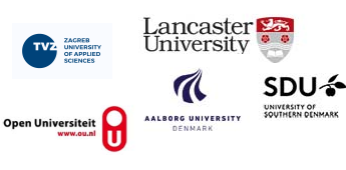

Distributed Learning and Isolated Testing: Tensions in Traditional Assessment Practices
Tim Fawns, Clara O'Shea
University of Edinburgh, Edinburgh, United Kingdom.
Keywords
Assessment, Distributed cognition, Situated learning
Abstract
Traditional assessment in higher education often measures performance in controlled conditions, isolating students from the people and many of the resources they have interacted with in the process of learning. While a desire to maximise reliability and standardise the measurement of ability is understandable, there is a danger that such practices privilege internal, individual and abstract forms of knowledge at the expense of contextualised, collective and adaptive practices. Most university graduates will need to be effective networked learners, using social and material resources to adapt to changing and complex workplace settings and, increasingly, digital networks. If we accept that assessment is an important driver of learning, then it follows that assessments in which students are able to make use of available resources and networks, may afford a more appropriate preparation for future employment, particularly in light of an increasing need to adapt to technological change.
In this paper, we draw on ideas from distributed cognition, in which processes of thinking are shared across people, tools and objects, to question traditional assessment practices. To ground our discussion, we present findings from a thematic analysis of blog posts of MSc Clinical Education students (made up of clinical educators from a variety of nationalities and disciplines) about the process of learning a novel motor skill. While these students tended to consider mastery of the skill to involve the ability to perform it without the help of people or supporting resources (instructions, images, video demonstrations, etc.), our analysis shows that there was often no clear boundary between supported and unsupported performance and that a requirement to reduce dependency on supportive networks and materials could be a barrier to development. Further, the acknowledgement by many students that learning and performance are contextual leads us to the conclusion that, while reducing reliance on resources may help to stabilise some forms of knowledge, it may also reduce opportunities to develop effective practices and the adaptive capacity to integrate into complex social and technological environments. In conclusion, we call for the development of assessments in which students are not only allowed but encouraged to make effective use of networks, technologies, environments and artefacts in ways that test both understanding and the ability to operate as components of distributed systems.
Joint Organising Institutions
Open University of The Netherlands
| Past Conference Proceedings | Contact |